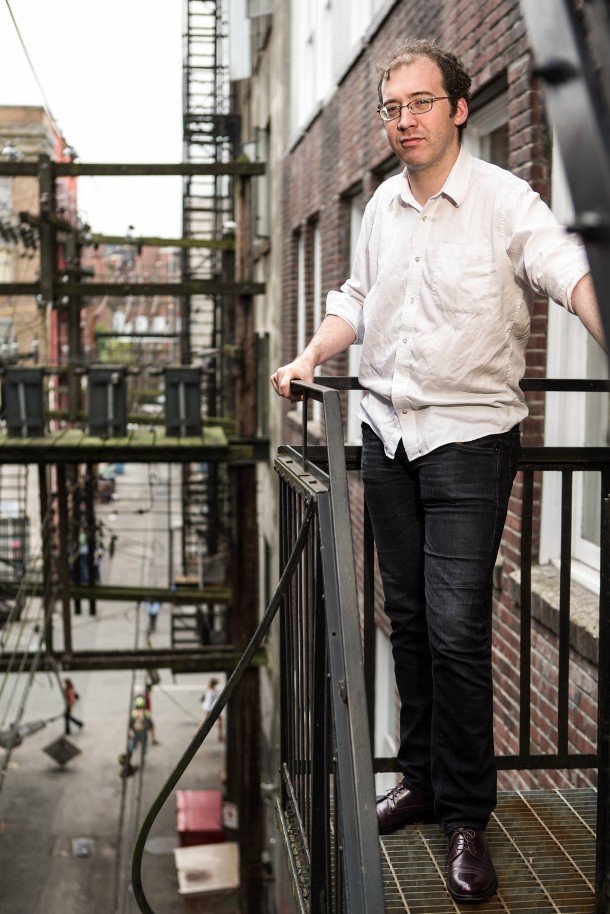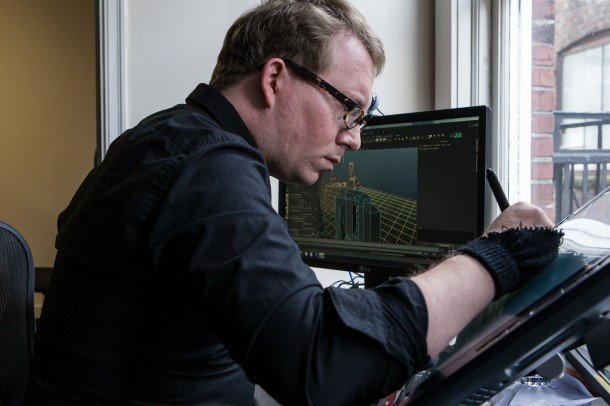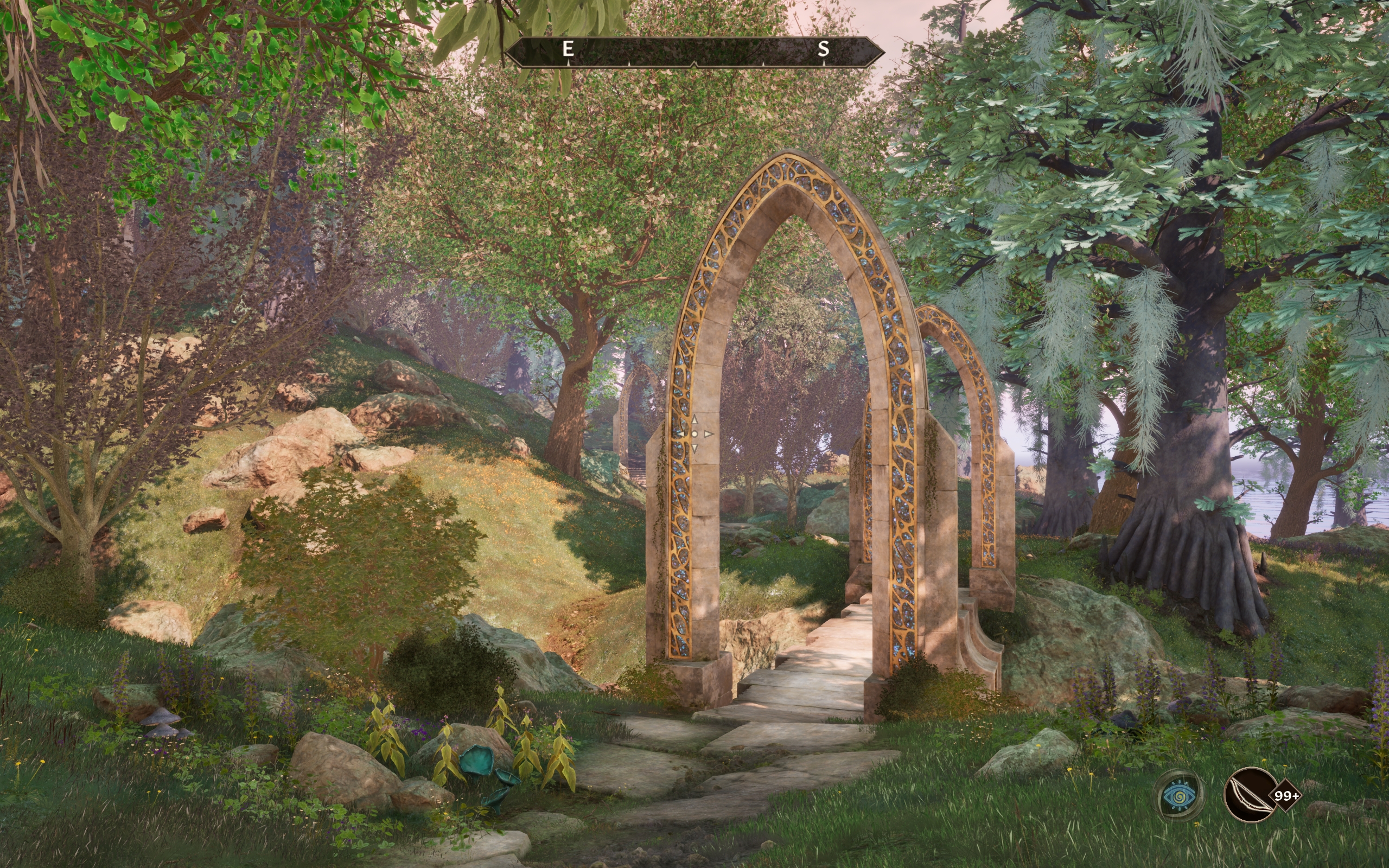Interview: Gaslamp Games' mad, incredible vision for Clockwork Empires

What are some things that the player can produce that they can be proud of?
DJ: Certainly some interesting Megaproject technologies. Like the ability to... If you have a useful standing military, and if they are actually capable of fighting other nations. Military technology, for that type of player, will be something that they'll be proud of. You could try to build a utopian colony, take care of everyone, make sure that nobody...
DB: Yeah, you could try to make everybody happy. Just building tons and tons of pubs.
NV: It also turns out that putting gears in everybody's brain is a good idea.
Is that something you can do?
DJ: This was one of your Megaproject ideas...
NV: The Wetware Initiative.
The biggest gaming news, reviews and hardware deals
Keep up to date with the most important stories and the best deals, as picked by the PC Gamer team.
DB: I think some way of nerve-stapling your people, whether it involves gears or Leyden jars or whatever... To turn them into less... They have less of a tendency to go insane.
NV: I hadn't thought about electroshock therapy. Thank you! I'm going to put that down...
I do like the idea of augmenting your citizens Deus Ex-style, and they all walk around complaining, "I didn't ask for this!" [laughter]
DJ: Oh, they won't ask for it.
NV: One thing that is an unspoken goal with Clockwork Empires versus Dredmor... Dredmor was very referential. We're trying to be a little bit tighter with the writing.
Some of your concept art, and I think in the e-mails you also mentioned zeppelins and air power. Are air vehicles something you produce? Or are they sort of ambient things owned by the Empire?
NV: You produce them.
DJ: One of the conceits that we're operating under as just a general UI decision is that, generally speaking, the units will not be directly controlled by you. And so, you might be able to produce a zeppelin, but you can't control them independently in the air, make them land on whatever. It's just a way of increasing the ability to either transport goods or to scout areas or something like that. But they're not directly controllable in the same way as in Warcraft II you had the goblin zeppelins just wandering around. Again, it's just a design decision. Most of the control for the game is going to be through the buildings and not through the units, because otherwise it would just get... It would have a tendency to become not only more like a competitive StarCraft-like game, but also, that just gets quite confusing.
Sure. In terms of their purpose, though, are they a trade asset, a war asset, or scouting asset? When I build one, what is it going to do? Is it just going to make its own decisions based on my needs?
NV: Well, is it a military zeppelin or is it a trade zeppelin?
DB: There's one way of putting it, which is this idea of setting policy rather than giving individual orders. Perhaps something like that. So you wouldn't have to micromanage.
NV: The big goal is really to avoid micromanagement.
DJ: In our current design, control of military units is done through barracks or military buildings. And from those you designate node points or... A patrol area if you want your people patrolling, or if you want to send them off to investigate something, you put a node point somewhere else. If you had a military zeppelin, you could create a sort of patrol grid, and it would automatically assume that it was going to be a scout and it would wander around that patrol grid. Similarly, if you had a zeppelin that was connected to your trade network, it would just assume that its goal was to take a look at what resources you wanted where, look for ways that it could pick up as many resources as it could carry, and be more efficient than just one guy picking up a crate and carrying it to one side of the map. A lot of these decisions are basically just going to be made by the AI. It's going to look at what the optimal choice that it can think of quickly is, and then try to do that.

Do you think part of the value in having that approach is, unlike StarCraft, you'll get to watch what you're doing? Meaning, you'll get to actually admire the world in motion and really take it in.
DB: Definitely.
NV: Yeah.
DJ: If the game is about building a settlement and watching people interact, you don't want to be controlling them all the time, because you can't watch them interact if you're forcing the interaction. It enables you to offload the micromanagement, and if you took StarCraft and you took the micromanagement out, all you would have is the macro management. The characters had some interesting things that you had time to look at. That would be more in line with the sort of feel that we want to get across.
Cool. I think that's why I prefer games like Sins, where I can pause the game at any time. It's about the spectacle and really sitting back with a tumbler of wine in your left hand or something and watching it happen.
NV: How erudite.
DB: You get yourself a Poirot mustache and a snifter of brandy and you pretend that you're David Souchet's character from, what was it, The Fifth Element, and you're just watching your torpedoes attack the giant blob.
That's exactly what I had in mind. So continuing this conversation about micromanagement... If a native population presents itself as a threat and I want to destroy them, what are some of the war assets I'm going to have?
NV: It's the various armies of steam-powered bull$*. [laughter] I have a note in the document that the Flying Clockwork Battlestation is "Three copies of Big Ben strapped together with gears and enormous steam vents sticking out the underside."
DJ: We have a tendency towards low steampunk. This is a constant source of discussion and argument. There will be steam-powered battle suits. There will be just random militia guys with guns. There will be some military vehicles. Some sort of track-based vehicles are I think on the list.
DB: Oh, I do want the armored train.
DJ: Yes, armored trains.
NV: There's also advanced technology coming to bear. It's generally acknowledged that a number of scientific theories that were conclusively proved wrong are quite right here. So you'll have your aetheric ray guns and all sorts of stuff.
DJ: So maybe you'll have a guy in the early game who's trudging along with a crude musket or something like that. And then in the late game, that same guy is riding some sort of clockwork equivalent of a horse and shooting a laser gun.
NV: Aetheric ray gun!
DJ: Aetheric ray gun, sorry. What are they, tearing holes in the ether or something? Or do they just shoot ether at people?
NV: Lord Palmerstoke notes that the ether is perfectly harmless, it could never kill a man. Apparently it surrounds us at all times like a gentle, nourishing fluid, and someone might as well attempt to kill a man with his own bathwater. So...
DJ: Yes, well... We'll see what happens.
Great. So, before I let you go, we should talk about how Gaslamp has changed. You guys have grown a lot after Dredmor, which was quietly, explosively successful. Your studio has twice as many people. You're leaving that space where you're a small team owning a vision. Emotionally, where are you at in terms of how do you feel about executing an ambitious concept?
NV: Excited, exhausted, and terrified. Also, stuff like time tracking and organization is a nuisance that I am not really all that used to, never mind just trying to deal with having four programmers and stopping everybody from breaking the game at random intervals. It's not my first time at the rodeo on a large team, but it's my first time being the guy in charge of a programming team of any significant size, and it's certainly not without its challenges.
DB: Some days it's a kind of manic triumph to be shooting so high, on others it's fearfully nerve-wracking to be going so far from doing something easy like going right to Dredmor 2. But we didn't get into this business to do safe and easy! From the perspective of taking on the role of art director, I'm going from a place with Dredmor in which I was drawing diggles in a basement somewhere and could theoretically complete every single art task myself to having to put my trust in a team of artists who know how to do things I'm not trained to do, 3D animation in particular. I have to learn a lot to be able to give them meaningful direction and support, to say nothing of reading the Employment Standards Act three times. There are always new challenges and Special Learning Experiences; never a dull moment.
"We didn't get into this business to do safe and easy!"
DJ: Honestly, it changes a lot from day to day. Generally speaking, I think, growth for any small studio is difficult, exciting, and uncomfortable, but I think comfort is a bit overrated. I know just before we released Dredmor we all really wanted the company to do well, and we did a decent job of preparing just in case it did, but the difficulties of starting a small business really get compressed into a small timeframe when you need to do so much of it after the fact. We have had to learn to deal with professionals that I don't know if any of us had ever had dealings with like lawyers, accountants, and bookkeepers. We're learning so much it's painful sometimes, but it really does make it exciting to get up in the morning because so much is going on. At the end of the day, we get to take our ideas and turn them into products tons of people enjoy, and that's immensely satisfying.
Revisit our preview of Clockwork Empires . Additional thanks to Andrew Ferguson for photography.

Evan's a hardcore FPS enthusiast who joined PC Gamer in 2008. After an era spent publishing reviews, news, and cover features, he now oversees editorial operations for PC Gamer worldwide, including setting policy, training, and editing stories written by the wider team. His most-played FPSes are CS:GO, Team Fortress 2, Team Fortress Classic, Rainbow Six Siege, and Arma 2. His first multiplayer FPS was Quake 2, played on serial LAN in his uncle's basement, the ideal conditions for instilling a lifelong fondness for fragging. Evan also leads production of the PC Gaming Show, the annual E3 showcase event dedicated to PC gaming.

